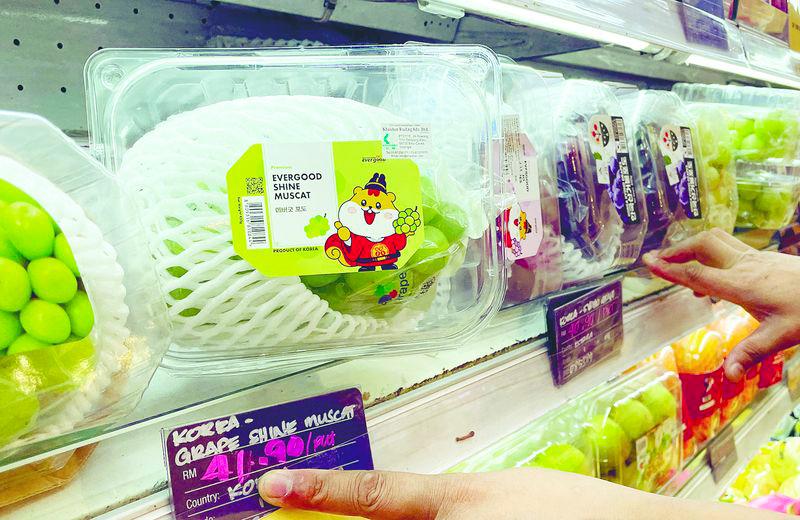PETALING JAYA: An agriculture entomologist has urged consumers to be mindful of pesticide residues in imported fruits and vegetables as they could be harmful to health.
Universiti Teknologi Mara Plantation and Agrotechnology Faculty lecturer Assoc Prof Dr Siti Noor Hajjar Md Latip said: “The public should familiarise themselves with the maximum residue limits (MRL) and Codex, the food code guidelines, to protect against health risks.
“The exact nature of the health risks depends on the type of chemical residues ingested and amount of contaminated fruit or vegetables consumed.”
She said most chemical residues found in contaminated fruit due to long-term exposure to pesticides have been linked to neurological disorders, hormonal imbalances, reproductive problems, respiratory conditions, kidney and liver damage, and certain types of cancer.
She was commenting on a warning from the Thailand Pesticide Alert Network (TPAN) that many samples of Shine Muscat grapes imported from Japan contained harmful chemical residues exceeding permitted levels.
ALSO READ: KPKM to probe entry of ‘Shine Muscat’ grapes into Malaysia
On Oct 27, TPAN and the Thailand Consumer Council called on the Thai Public Health Ministry to require importers and distributors to label the country of origin for imported Shine Muscat grapes.
Siti Noor Hajjar said pesticide residues should not pose health risks if they are below the MRL threshold.
“In Malaysia, the listed MRL are based on information from registered pesticides. The list of pesticides and MRL for each listed commodity is subject to Schedule Sixteen (Regulation 41) of the Food Regulations 1985.”
She said awareness of MRL standards and Codex guidelines, established by the Food and Agriculture Organisation (FAO) and World Health Organisation (WHO), is vital as they ensure products meet health and safety criteria.
“By applying these guidelines, consumers could protect themselves from potential health risks associated with pesticide exposure.
“In some cases, pesticide residues could have side effects on children and pregnant women as exposure during pregnancy may lead to issues such as miscarriages and birth defects.”
ALSO READ: MOH continuously monitors imported food for pesticide safety compliance
She called on authorities to conduct regular inspections and testing, particularly for imported non-processed items, such as fruits and vegetables.
“Importers should demand testing of pesticide residues in imported agricultural products following FAO and WHO guidelines to ensure acceptable residue levels are maintained.”
She said the most common harmful residues detected in grapes are metalaxyl, myclobutanil and penconazole, which are fungicides normally used to address powdery mildew in grapevines.
She said Shine Muscat grapes were first commercially grown in Japan in 2006.
“Its seeds have since spread to China and Korea, with China now dominating the global market by offering lower prices.
“Malaysia has been importing Shine Muscat grapes from China, Japan and Korea for the past 10 years.”
ALSO READ: Use approved pesticides on wild animals, public urged
The Health Ministry said on Oct 28 that it would monitor and enforce food safety under the Food Act 1983 and its regulations through the Food Safety and Quality Programme at all 70 entry points into the country.
“This involves various control and compliance activities for imported foods through certified documents, physical and label inspection, sample collection, and detention at importers’ warehouses.”
The ministry encouraged consumers to examine labels on packaged imported foods for key information, including the country of origin, to make informed choices.
MRL info can be checked at mymrl.doa.gov.my/.









